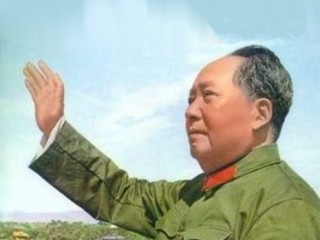
Mao Zedong biography
Date of birth : 1893-12-26
Date of death : 1976-11-09
Birthplace : Beijing, People's Republic of China
Nationality : Chinese
Category : Politics
Last modified : 2010-04-13
Credited as : Chinese political/communist leader, Maoism brand of policie,
2 votes so far
Mao remains a controversial figure to this day, with a contentious and ever-evolving legacy. He is officially held in high regard in China as a great revolutionary, political strategist, military mastermind, and savior of the nation. Many Chinese also believe that through his policies, he laid the economic, technological and cultural foundations of modern China, transforming the country from an agrarian society into a major world power. Additionally, Mao is viewed by many as a poet, philosopher, and visionary, owing the latter primarily to the cult of personality fostered during his time in power. As a consequence, his portrait continues to be featured prominently on Tiananmen and on all Renminbi bills.
Conversely, Mao's social-political programs, such as the Great Leap Forward and the Cultural Revolution, are blamed for costing millions of lives, causing severe famine and damage to the culture, society and economy of China. This is generally accepted in China as well as by the Chinese Communist Party[citation needed]. Mao's policies and political purges from 1949 to 1976 are widely believed to have caused the deaths of between 50 to 70 million people. Since Deng Xiaoping assumed power in 1978, many Maoist policies have been abandoned in favour of economic reforms.
Mao is regarded as one of the most influential figures in modern world history, and named by Time Magazine as one of the 100 most important people of the 20th century.
Mao's Red Army overthrew Chiang Kai-Shek in 1949, and the communists seized power of mainland China. Ruthless and ambitious, Mao turned China into a world military power and created a cult of personality, forcing the distribution of his image and his "Little Red Book" (a collection of political maxims) upon the Chinese people. His campaign to export communism made China a threat to the West and led to confrontations in Southeast Asia and Korea. Under Mao's rule China endured a series of economic disasters and political terrorism, but for more than 25 years Mao was China, as far as the rest of the world was concerned.
After his death, leaders like Deng Xiaoping steered the country away from pure communism, and the Cult of Mao began to disappear.
These days Mao is ranked among the worst of 20th century dictators alongside Joseph Stalin and Adolf Hitler.
















